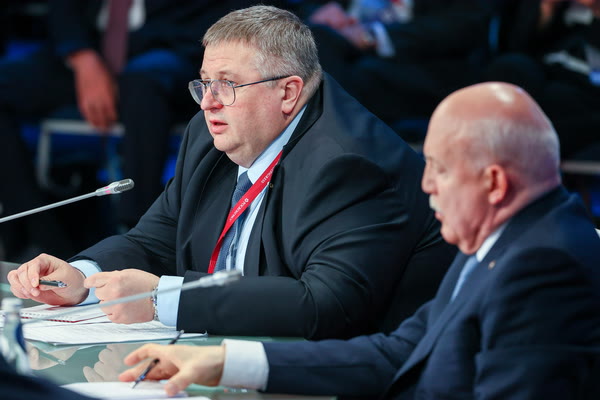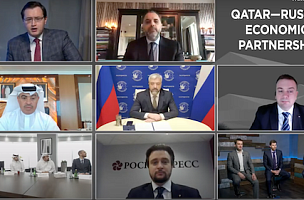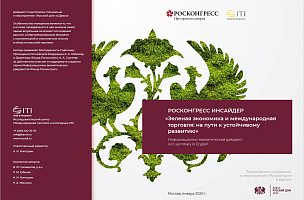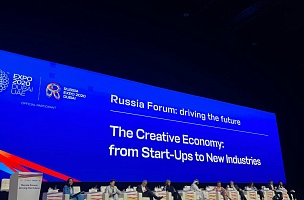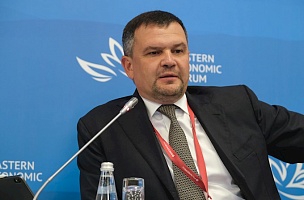Key conclusions
Russia and Belarus’s Common Historical Past Brings Them Closer Together
“There is a popular opinion that the economy prompts Belarus toward integration with Russia. […] I don’t agree withthis theory. It is clear to everyone today that there are only two fully Russian-speaking countries in the world – Russia and Belarus. And that construction of a sovereign Belarus and a Belorussian nation was carried out all these years in Russian. […] We all understand intuitively that we find ourselves in a sort of common mental space”, Nikolay Snopkov, First Deputy Prime Minister of the Republic of Belarus.
“What we are doing is objective in its essence, specifically the drawing together of our countries, the coming together of our peoples and, at the same time, each of the countries retains its identity and sovereignty”, Alexey Overchuk, Deputy Prime Minister of the Russian Federation.
“As for the Union State, what do we mean by this? Above all mutual assistance. I am in total agreement with Nikolay Gennadyevich [Snopkov – Ed.] on this – maybe this is not to do with the economies but more likely our strategic, geopolitical and historical choice”, Dmitriy Volvach, Deputy Minister for Economic Development of the Russian Federation.
The Countries’ Integration is Now Being Boosted in All the Main Economic Spheres
“There are already some advances and solutions. […] Internal agreement is under way of the draft agreement between the Russian Federation and the Republic of Belarus on common principles of indirect taxation. […] Moreover, as part of setting up the common space where movement of goods and transport will be monitored, Rostransnadzor, in conjunction with Belarusian colleagues, is continuing the process of integrating the transport control systems”, Dmitriy Volvach, Deputy Minister for Economic Development of the Russian Federation.
“What is behind this integration and what are we doing it all for? I very much like the phrase “not notice”. That is, when we communicate, when we cross the border in everyday life, we understand that everything is very similar, very much the same. And then a situation suddenly arises when that is not the case. What in classical theory of law we call a form of sovereignty, separate taxation, has a reverse side to it. […] So we and our colleagues from the Tax Service of Belarus took very seriously the task of establishing the procedures to decide, above all, the question of “unnoticeably”. We can proudly say that the first programme has been fulfilled and the monitoring system launched. And now it is up to the states to determine which types of goods take into this system”, Daniil Egorov, Head of Federal Tax Service.
“Together with our partners, with the Ministry of Industry and Trade of the Russian Federation, we approved a corresponding action plan, developed precise algorithms for joint work that we are now implementing through the functioning of sector subgroups by direction. There are eight such subgroups, the key ones being car manufacturing, agricultural engineering, machine-tool building, and micro-electronics. Also our partners from neighbouring concerns in the relevant spheres – ‘Bellegprom’ for light industry, ‘Belneftekhim’ for petrochemicals. The Ministry of Health drew up a programme together with pharmaceuticals. The Ministry of Power for fuel and energy engineering”, Dmitry Kharitonchik, Deputy Minister for Industry of the Republic of Belarus.
PROBLEMS
Full Economic Integration of the Countries Has not Been Achieved During the Years of Cooperation
“In the Union State and later in the Eurasian Economic Union, we announced legally the state of common internal markets. But, in practice, this unity turned out to be rather arbitrary owing to a number of unresolved issues: the difference in energy tariffs, subsidisation mechanisms, a multitude of exceptions and restrictions, particularly in relation to state procurements”, Nikolay Snopkov, First Deputy Prime Minister of the Republic of Belarus.
“Of course, the union agreement contained far more meanings and concepts than just creation of these opportunities for unhindered movement and work in the two countries. And, of course, there were periodical approaches to the core issue but apparently something got in the way each time”, Alexey Overchuk, Deputy Prime Minister of the Russian Federation.
“We must understand how business is feeling. We realize that the structures of the economies in Russia and Belarus are not identical. There is a tremendous share capital that determines, among other things, stability on the labour market in the Russian Federation”, Dmitry Mezentsev, State Secretary of the Union State of Russia and Belarus.
Slow Integration
“Given Belarus’s political and moral choice in the current geopolitical crisis, our economic model has come up against a really serious challenge. Yet, at the same time, the question of its transformation without creating a seamless joining to the Russian economy is not being resolved as quickly as the situation demands”, Nikolay Snopkov, First Deputy Prime Minister of the Republic of Belarus.
“Much of what was then [in the 1990s – Ed.] in projects and forecasts has already happened while, to be honest, some others could not be carried through. In particular, it would be better if integration processes went faster than they are at the moment. Especially given the unprecedented sanctions pressure”, Alexander Shokhin, President, Russian Union of Industrialists and Entrepreneurs.
“During the process of interrelations, we come to a practical solution to the issues that arise by means of already signed documents or ones that are under development. For instance, import substitution became a problem for us. We made an exchange platform, a good one, after visiting the Nizhny Novgorod Region, which submitted an order to us. And immediately, within a week, we had put half the entire order into production”, Vladimir Koltovich, Deputy Chief of Stuff of the Council of Ministers of the Republic of Belarus.
SOLUTIONS
More Active Development Needed of the Two Countries’ Economies
“Time and the situation also dictate that we deal with strategic problems promptly as well. I mean not just darning temporary holes in trade balances, above all that of Belarus, but organising joint development of the economies, joint development of the industrial and agro-business complex. In such a way that Belarus would see its economic future alongside and together with Russia”, Nikolay Snopkov, First Deputy Prime Minister of the Republic of Belarus.
“We are endeavouring really to organise joint development of the economies, as Nikolay Gennadyevich [Snopkov – Ed.] said. And ultimately, looking at our economies, they were very strongly interlinked. Looking at Belarus’s export volumes in 2020, exports of about 49% [of the country – Ed.] were tied to Russia”, Alexey Overchuk, Deputy Prime Minister of the Russian Federation.
New Cooperation Tools and Forms Needed
“In our opinion, one might consider a special tool, such as a union investment contract. With production of components distributed between Russian and Belarusian enterprises and guaranteed sales under corresponding state programmes”, Nikolay Snopkov, First Deputy Prime Minister of the Republic of Belarus.
“I do not exclude that one might consider setting up a body, like a Council for Business Cooperation under the Permanent Committee of the Union State. In order constantly [to monitor the situation – Ed.] in key spheres, including the 28 programmes and [particularly – Ed.] that affect business most, in order to be able to agree at a В2Вlevel”, Alexander Shokhin, President, Russian Union of Industrialists and Entrepreneurs.
For more details, see the ROSCONGRESS.ORG Information and Analytical System.


